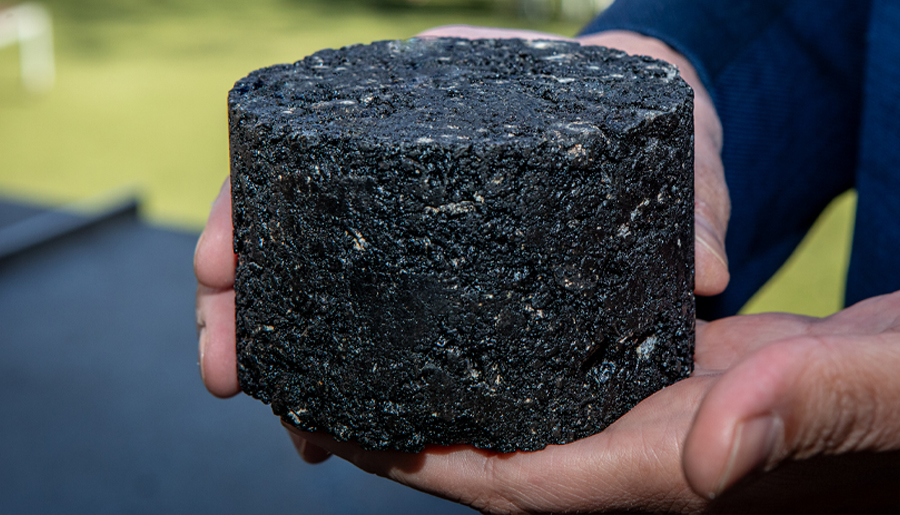Chip packets, bread bags, and cling wrap. All of these soft plastics are infamously hard to get rid of and biodegrade. However, a tonne of these plastic products might soon be saved from haunting our landfills. ‘Cause some of this plastic will be recycled into our roads.
According to scientists at RMIT University, numerous types of recycled plastics can be used to enhance Australia’s asphalt mixtures. In a study published in Science of the Total Environment, they asserted that certain rubbers, soft plastics, and commercial plastics can make roads more durable and less likely to crack.
Under pressure testing, RMIT’s recycled plastic asphalt mixtures had 150% less cracking and 85% less deformation than classic asphalt.
The head of this project, Associate Professor Filippo Giustozzi, was incredibly chuffed with these results. He’s also excited for what they mean moving forward.
“These studies tell us that adding specific types of plastic in the right way can generate greater rutting and fatigue resistance,” said Giustozzi.
“In some instances, the performance of the mix was similar to some of the more expensive polymers used in roads and substantially higher than conventional asphalt mixes.”
Recycled Plastic Roads: The Next Steps
Now, this study would be a slay in itself, but there’s even more good news to discuss. The RMIT is teaming up with ten Victorian Councils to make some recycled plastic roads a reality. They’re doing this with support from the Australian Research Council and Austroads.
What’s more, this project isn’t taking place in the distant future. Within the coming months, the City of Melbourne and 9 other councils will pave sections of recycled roads that are up to 900 metres long.
According to Giustozzi, between 0.5% and 1% of the asphalt mixture used in these roads will be recycled plastics. However, this will eliminate more waste than you might assume. The City of Melbourne and the 9 other councils are expected to use 21,000 kg worth of recycled plastics in their upcoming roads.
As Giustozzi explained, “If Australia’s 537 local governments each used a small amount of recycled plastic in the many roads they resurface each year, then nationally we’ll have created a large end-market for recycled plastic.”
Related: What Is Green Hydrogen, and Will This Tech Save Western Australia?
Related: NSW Is Scoring Another Wind Farm — But the Turbine Debate Keeps Going Round
Read more stories from The Latch and subscribe to our email newsletter.







